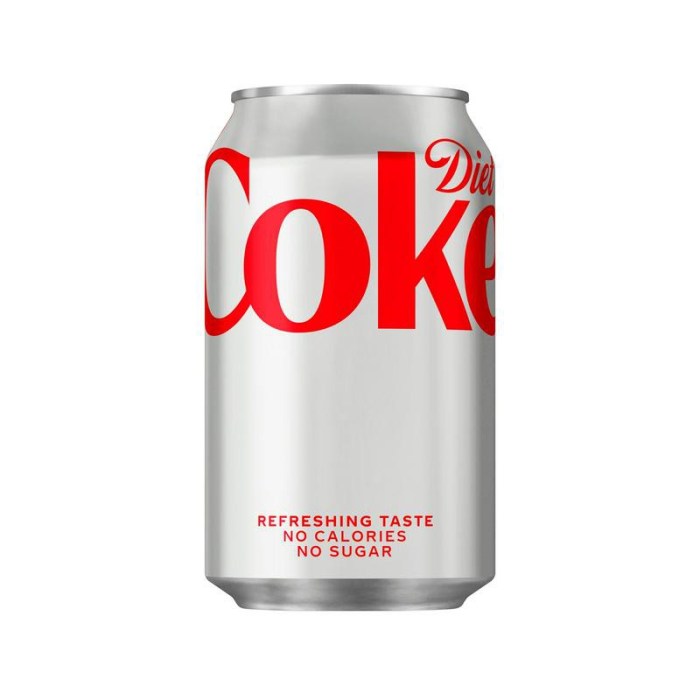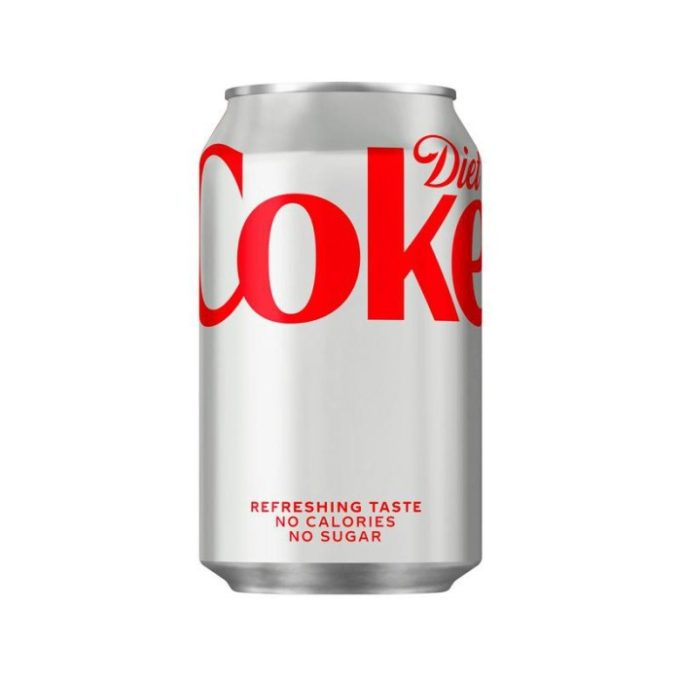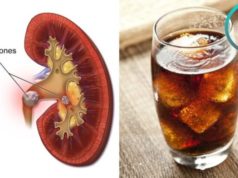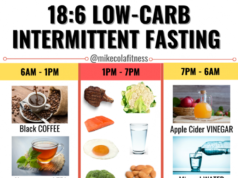What does Diet Coke taste like? This question has sparked countless debates and opinions, with the answer often depending on individual taste preferences. Diet Coke, a sugar-free alternative to its classic counterpart, has a unique flavor profile that sets it apart. While it shares the iconic Coca-Cola taste, the absence of sugar significantly impacts the sensory experience.
Diet Coke’s flavor is a complex blend of sweetness, bitterness, and carbonation. The artificial sweeteners used to achieve the sweetness, such as aspartame and acesulfame potassium, create a distinct taste that some find refreshing, while others may find it less satisfying than the sweetness of sugar. The bitterness of the cola flavor, combined with the carbonation, adds complexity and depth to the taste profile.
Diet Coke: A Taste Exploration
Diet Coke is a popular sugar-free soft drink produced by The Coca-Cola Company. It was first introduced in 1982 as a diet version of Coca-Cola, aimed at consumers seeking a low-calorie alternative. Diet Coke is characterized by its distinctive taste, which is often described as crisp, refreshing, and slightly sweet.
The perception of taste is a complex process involving multiple senses, including taste, smell, and texture. Taste buds on the tongue detect different flavors, while olfactory receptors in the nose detect volatile compounds that contribute to aroma. The brain integrates these sensory inputs to create a complete taste experience.
Ingredients and Their Role in Taste
Diet Coke is made with a combination of ingredients that contribute to its unique flavor profile. These ingredients include:
- Carbonated Water: Provides the fizz and refreshing sensation.
- Caramel Color: Adds color and a slightly sweet, burnt sugar flavor.
- Phosphoric Acid: Contributes to the tangy and acidic notes.
- Aspartame and Acesulfame Potassium: Artificial sweeteners that provide sweetness without added sugar.
- Natural Flavors: A blend of natural extracts and flavorings that contribute to the overall taste profile.
- Caffeine: A stimulant that adds a slight bitterness and contributes to the overall stimulating effect.
The specific proportions of these ingredients are carefully controlled to create the signature Diet Coke taste. The combination of sweetness, acidity, and bitterness, along with the carbonation, creates a complex and refreshing flavor profile.
Taste Profile
Diet Coke’s taste is a complex interplay of sweetness, bitterness, and carbonation. While it lacks the sugar present in regular Coke, it still offers a familiar, refreshing experience.
Sweetness and Bitterness
Diet Coke achieves its sweetness through the use of artificial sweeteners, primarily aspartame. This provides a sweet taste that is similar to sugar but without the calories. The bitterness in Diet Coke comes from the caffeine and the caramel coloring used to give it its distinctive brown hue. The balance of these flavors creates a taste that is both sweet and slightly bitter, which is characteristic of the cola flavor profile.
Comparison to Other Colas
Diet Coke’s taste is distinct from other diet colas and regular Coke. Compared to other diet colas, Diet Coke often has a more pronounced sweetness and a less artificial aftertaste. This is likely due to the combination of aspartame and the specific blend of flavors used in its formulation. When compared to regular Coke, Diet Coke’s sweetness is less intense, and the absence of sugar results in a lighter, less syrupy mouthfeel.
Impact of Sugar Absence
The absence of sugar significantly impacts the taste profile of Diet Coke. Without sugar’s inherent sweetness and viscosity, Diet Coke has a cleaner, less cloying taste. The lack of sugar also means that Diet Coke doesn’t have the same syrupy texture as regular Coke. This can be perceived as a lighter, more refreshing experience, especially for those who prefer a less sweet beverage.
Sensory Experience
The sensory experience of Diet Coke is a complex interplay of taste, aroma, and mouthfeel, all influenced by the unique combination of ingredients. Understanding these elements helps to appreciate the distinctive character of this popular beverage.
Mouthfeel and Carbonation, What does diet coke taste like
Diet Coke’s mouthfeel is characterized by its effervescence and a light, refreshing texture. The carbonation plays a crucial role in delivering this sensation. The tiny bubbles that rise to the surface create a tingling sensation on the tongue, enhancing the overall sensory experience. This sensation is also associated with a feeling of lightness and refreshment, contributing to the drink’s appeal.
Individual Preferences
The perception of Diet Coke’s taste is highly subjective and influenced by a multitude of factors, including personal experiences, cultural background, and individual taste sensitivities.
Factors Influencing Taste Preferences
Several factors contribute to individual preferences for Diet Coke. These include:
- Sweetness Perception: Individuals have varying sensitivities to sweetness, which can influence their perception of Diet Coke’s artificial sweeteners. Some may find the sweetness level to be just right, while others may perceive it as too intense or artificial.
- Carbonation Level: The carbonation in Diet Coke can also contribute to individual preferences. Some individuals enjoy the tingling sensation and the refreshing quality it provides, while others may find it too bubbly or overwhelming.
- Flavor Profile: Diet Coke’s flavor profile, which combines a hint of citrus with a slightly bitter aftertaste, can appeal to some individuals while being off-putting to others.
- Personal Experiences: Past experiences with Diet Coke, such as positive associations with social gatherings or a specific time of day, can influence an individual’s perception of its taste.
- Cultural Influences: Cultural norms and preferences can also shape an individual’s taste for Diet Coke. In some cultures, the use of artificial sweeteners may be more common and accepted, while in others, natural sweeteners may be preferred.
Descriptions of Diet Coke’s Taste
Individuals often use a variety of terms to describe the taste of Diet Coke. Some common descriptions include:
- Positive: Refreshing, crisp, clean, zesty, citrusy, bubbly, tangy, invigorating, satisfying.
- Negative: Artificial, chemical, sweet, bitter, metallic, flat, watery, bland, cloying.
Reasons for Appeal and Unappeal
- Appeal: Individuals who find Diet Coke appealing often appreciate its refreshing qualities, its ability to quench thirst, and its association with social gatherings or special occasions. Some individuals also appreciate the absence of sugar and calories, making it a guilt-free indulgence.
- Unappeal: Individuals who find Diet Coke unappealing may dislike the artificial sweeteners, the strong carbonation, or the specific flavor profile. Some may also be sensitive to the caffeine content or find the overall experience to be too sweet or artificial.
Comparisons and Contrasts
Diet Coke, while distinctive in its own right, can be compared and contrasted with other diet sodas and its sugar-laden counterpart, regular Coke. Understanding these comparisons helps in appreciating the nuances of its taste profile.
Comparison with Other Diet Sodas
Diet Coke’s taste profile stands out against other diet sodas. Here’s a comparison that highlights key differences:
| Soda | Taste Profile | Key Differences |
|---|---|---|
| Diet Coke | Citrusy, slightly sweet, with a hint of bitterness | Stronger citrus flavor, more pronounced bitterness, less artificial sweetness |
| Diet Pepsi | Sweet, with a slight citrus tang | More pronounced sweetness, less bitterness, artificial sweetener taste more noticeable |
| Diet Sprite | Citrusy, tart, with a hint of sweetness | More tart, less sweet, pronounced lemon-lime flavor |
| Diet Dr. Pepper | Complex, with notes of cherry, cola, and fruit | More complex flavor profile, less citrusy, unique flavor combination |
Comparison with Regular Coke
The absence of sugar in Diet Coke significantly impacts its taste profile when compared to regular Coke. Here’s a breakdown:
- Sweetness: Regular Coke’s sweetness is more pronounced and rounded, while Diet Coke’s sweetness is more subtle and artificial.
- Body: Regular Coke has a thicker, more syrupy mouthfeel due to the sugar content. Diet Coke, on the other hand, has a lighter, less viscous mouthfeel.
- Flavor: The absence of sugar in Diet Coke allows the other flavors, particularly the citrus notes, to be more prominent. Regular Coke’s sweetness tends to mask some of the underlying flavors.
Final Summary

Ultimately, the taste of Diet Coke is subjective and influenced by individual preferences. Whether you find it a refreshing alternative to regular Coke or an acquired taste, there’s no denying that Diet Coke has a distinct flavor profile that has made it a popular choice for those seeking a sugar-free beverage option. The unique blend of sweetness, bitterness, and carbonation, along with the artificial sweeteners, creates a sensory experience that is both familiar and distinct. The debate surrounding the taste of Diet Coke continues, with its popularity and unique flavor profile ensuring it remains a topic of discussion.
FAQ Summary: What Does Diet Coke Taste Like
Is Diet Coke bad for you?
Like any other beverage, moderation is key. While Diet Coke is sugar-free, it contains artificial sweeteners and caffeine, which may have their own health implications.
Does Diet Coke have any calories?
Diet Coke is generally considered a zero-calorie beverage. However, it’s important to note that some variations or flavors may contain a small number of calories.
Why does Diet Coke taste different from regular Coke?
The absence of sugar in Diet Coke significantly impacts its taste profile. The artificial sweeteners used to achieve sweetness create a different taste sensation than regular sugar.
Is Diet Coke good for weight loss?
While Diet Coke can help reduce calorie intake, it’s not a magic weight loss solution. A healthy diet and regular exercise are crucial for weight management.
Diet Coke has a familiar, slightly sweet taste with a hint of citrus. It’s a refreshing alternative to regular Coke, but some find the artificial sweetener a bit too strong. Speaking of alternative ways to get a good workout, have you considered hula hooping?
You might be surprised to learn that can you lose weight with hula hoop , especially if you’re looking for a fun way to get moving. Of course, the taste of Diet Coke is still a matter of personal preference, and some people find it refreshing while others find it too artificial.
Diet Coke’s taste is a bit of a mystery. Some describe it as a refreshing, citrusy fizz, while others find it a bit too sweet. If you’re looking to cut back on sugar and potentially lower your blood pressure, you might want to consider the best diet to lower blood pressure , which emphasizes fresh fruits, vegetables, and whole grains.
Ultimately, whether you like Diet Coke or not is a matter of personal preference, but it’s always good to be mindful of your overall health and dietary choices.
Diet Coke, with its familiar bubbly fizz, has a taste that’s both refreshing and slightly sweet. It’s a great option for those looking for a zero-calorie alternative to regular soda. Speaking of health, did you know that iodine is an essential mineral for proper thyroid function?
You can find out more about incorporating iodine into your diet here. Back to Diet Coke, the taste is definitely acquired, but for many, it’s a perfect balance of carbonation and sweetness.
























